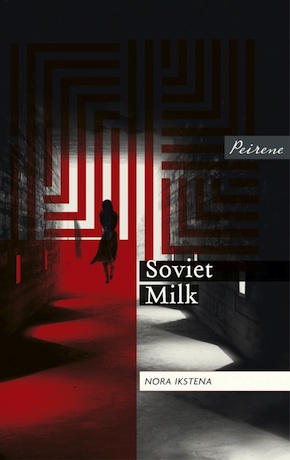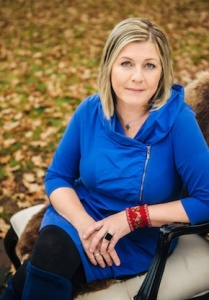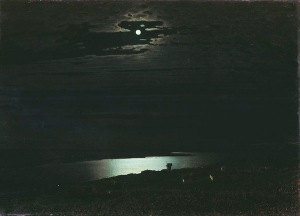New happiness
by Mika Provata-Carlone
“A soul-baring study of depression, intellectual frustration, motherhood, and life in the Soviet Union.” Grant Rintoul, 1st Reading
There is a Latvian goddess of happiness, Laima. It was most probably she who instilled the Latvian language with its rhythmical lilt, its roguish plosives and stops, the stark, spare melodiousness of its musicality. It was most probably she who lured generations of Latvians, both ancient and modern, to their native forests and fields – to mushrooms, to the hues and textures of trees, and the sounds and voices of the air and the mysteries of man and time. To fairy tales, storytelling and to the pursuit of truth. Laima must have had a particularly hard time surviving the Soviet rule of Latvia during the 20th century. Yet if Nora Ikstena’s writing is any proof, survive it she did, and it may be that the goddess gained much strength and the talent of inner vision in the process.
Soviet Milk is Ikstena’s second book in English. The first was Life Stories (2004), a collection of short stories centred on exile, death and war, real and existential displacement, alienation, the ‘home of language’, the relationship between mothers and daughters – and also fathers, absent or present. They addressed the questions of historic guilt and responsibility, Germans, Russians and their part in Latvia’s history and pain, the disjunction between a cage and freedom, the complexities of history, of allegiances, and of attachment. The stories also feel their way towards a re-encounter with spirituality and eschatology, the Latvian Church and Christianity, with faith vs. the power of cold logic, with faith in a faithless, hopeless world. They are frequently about physical and mental decline, about the will to live or the drive towards a non-existence that defies death itself. Remarkably, refreshingly, beguilingly, Ikstena sums them up, as she does all of her work, as “a celebration of life”.
The same themes return in Soviet Milk. This is a novel that was written originally on commission, in order to be part of the collection We. Latvia. The 20th Century. The only requirement for the authors invited to contribute was to focus on a particular time frame of Latvian history. Ikstena pulls off a quiet tour de force in that sense: she gives us two alternating, but, to an extent, also interchangeable narrative voices, mostly distinct, often syncopated, yet always organically and inalienably connected, as by an unsevered umbilical cord. She gives us both past and future: the voice of a mother numbed by the experience of the Soviet regime and condemned to a state of mental and physical death wish she cannot cast off, and the voice of a daughter who is spared the mother’s ‘soviet milk’ (the original title in Latvian is Mother’s Milk) and can therefore hope and dream beyond what seems like the only possible reality. A third, muted voice is that of the grandmother, who has known past and present and still has not given up on the future. Old roots, broken tree trunks, new shoots, Ikstena’s novel transcends the conventions of the historical novel and straddles the 20th century to incarnate three souls, perhaps even a substantial portion of her beloved Latvian psyche.
Words necessarily and vitally fail the pain and the inhumanity behind the relation of episodes that are as autobiographical as they are emblematically historical.”
“I don’t know”; “I don’t remember”; these are recurrent introductions to an image, a memory, a person or a story, as well as existential formulae the characters strive to confront and perhaps transcend. They are almost always followed by the assertion “but I can” – reconstruct, imagine, guess, in what is a constant process of recollection, rearrangement, reassessment and revision of not one but many lives, and especially the life of a nation. The emphasis on individuals blurs some of the historical layers, acts as an involuntary (or not) blinker of conscience and analysis on occasion, yet on the whole it succeeds in engaging us in what is a formidable journey of empathy, of sometimes uncomfortable intimacy, a gritty trajectory towards pure truth and total clarity.
The perspective is a fusion of innocence and experience; of phatic descriptions of states of Soviet being (or non-being) and potent subtexts. Its particular focus is all that renders life meaningful, vital, and all that Soviet ideology classified as netselesoobrazno – non-essential – such as simple, instinctive humanity, joy, a sense of belonging, the strength to hope. Ikstena creates telling contrasts between a seemingly naïve illustration of everyday life and a more interiorised philosophising voice. It is a powerful narrative technique, very dramatic, unfailingly evocative and with a bitter kind of beauty, yet sometimes her strategy of fictionalising the mother’s inner world, the workings of devastation and of existential crisis, their historical and individual causes, can feel overworked, too novelistic. Ikstena aims to give us a natural revelation akin to a song of woe without words. If the art of writing is sometimes too evident, her art of humanity is certainly never artificial or contrived.
She possesses a very tactile sense of time, of atmosphere, of the feeling and resonance of a place (or of an absence), of the gestures of life and of death. In this intertwined, diaristic, dialectically confessional monologue of a novel, a palpable picture of the Latvian SSR emerges with harrowing coldness, greyness, many questions and especially undefeated lives. The mother has witnessed and suffered trauma and violence that is hard to articulate – words necessarily and vitally fail the pain and the inhumanity behind the relation of episodes that are as autobiographical as they are emblematically historical. The experience causes a kind of emotional amputation. She cannot remember sadness, experience joy, feel or desire attachment. She becomes a gynaecologist, in an ironic twist on the symbolism of maternity, the female body, womanhood, the theme of mothers and daughters. Female anatomy replaces female consciousness and existence, horrifically, abortively, inadequately. At that historical moment, within that ideology, inside the mother’s depression and death drive, it will have to suffice, and especially provide “the truth about the wretched, hypocritical creature we call man.” Everyday acts of humanity or survival seem alien to her – “yet beside the mountains of medical textbooks lay a half-read Moby-Dick. It spoke of her longing for a life of the mind that remained beyond her grasp.” A life of the heart as well as of the mind, even if she feels an outsider, walking “past their life, where I didn’t fit, but always inhabited it like a ghost from another world to whose mystery I was increasingly drawn.” “Call me Ishmael” becomes a cri de guerre for this woman walking the line between humanity and the wilderness, to be replaced by the voice of 1984’s Winston, and then by a more soothing, Mariological voice she almost does not dare to listen to or believe in. One of her patients will tell her she is like the Mother of God – and in terms of suffering, the mother of Soviet Milk is indeed a mater dolorosa, who tragically cannot pray for her daughter.
As hard and piercing as it can be funny and intoxicating… the novel is a pageant of the minutes of a private life and the hours of history; of individual spaces and of Latvia as a nation bereft of the nationhood it has not forgotten.”
Yet somehow the prayer is heard. Ikstena deplores “yellow press positive thinking” and the spiel of perfection. Celebrating life also means celebrating its faults, failings, traumas, its fragility, inadequacy and pain. The daughter, in her thwarted, awkward childhood, also receives the blessing of closeness and understanding, of empathy and persevering endurance. The limitations of the mother become the freedom of the daughter. “Sometimes a demonic force seemed to possess [the mother], compelling her to destroy everything around her, especially the love of those she held dear.” The daughter will learn to build, even to sustain a love that may seem impossible: credo quia impossibile est, Iksena seems to have pencilled in between her lines.
Soviet Milk can be as hard and piercing as it can be funny and intoxicating. From ironic references to bylaya roskosh – the times of former grandeur, to feasts of simple or more sumptuous food and the dubious delights of sovetskoye shampanskoye (soviet champagne), to the hypocrisy of Mayakovski’s patriotic poems, the elegiac beauty of Arkhip Kuindzhi’s Moonlit Night on the Dnieper (which is in the State Russian Museum and not in the Hermitage), or the tragedy of Klävs Elsbergs, the unnamed poet who is pushed out of a hotel window in Jürmala, the novel is a pageant of the minutes of a private life and the hours of history; of individual spaces and of Latvia as a nation bereft of the nationhood it has not forgotten.
Ikstena’s writing is full of pictures, scenes, metaphors and paths into the inner processes of being. It is full of images, sounds, a certain music in language – Ikstena has said that she lives “on and in language”. Soviet Milk is a story about a mother and a daughter, a grandmother and a step-grandfather; or it is about Latvia, being passed from one oppressor to another; it is perhaps a Bildungsroman of a young girl in Soviet times; about growth in nature and in people – individuals as well as civilisations; it is about god and godlessness, man and wilderness. It has as many layers as the reader may wish to see displayed across the pages. It is perhaps a variation on Ikstena’s favourite line in fiction, “His soul swooned slowly as he heard the snow falling faintly through the universe”, from ‘The Dead’ in Joyce’s Dubliners. Ikstena has said that she has been trying to tell her mother’s story since her first published work. Perhaps with Soviet Milk that story now transcends its telling, becoming that celebration of a life but also the echo of a question, a lament: what part of the Latvian soul died, did not survive the history of its nation? If anything, Ikstena insists it is not Laima.
 Nora Ikstena was born in 1969 in Riga and studied at the University of Latvia before moving to New York. On her return to the Baltics she helped establish the Latvian Literature Centre. She published her first novel, Celebration of Life, in 1998 and has since written over twenty books. Soviet Milk, translated by Margita Gailitis, is published by Peirene Press.
Nora Ikstena was born in 1969 in Riga and studied at the University of Latvia before moving to New York. On her return to the Baltics she helped establish the Latvian Literature Centre. She published her first novel, Celebration of Life, in 1998 and has since written over twenty books. Soviet Milk, translated by Margita Gailitis, is published by Peirene Press.
Read more
Author portrait © Aiga Redmane
Margita Gailitis has translated some of Latvia’s finest poetry and prose into English, including Sandra Kalmiete’s With Dance Shoes in Siberian Snows and Māra Zālīte’s Five Fingers.
Mika Provata-Carlone is an independent scholar, translator, editor and illustrator, and a contributing editor to Bookanista. She has a doctorate from Princeton University and lives and works in London.


